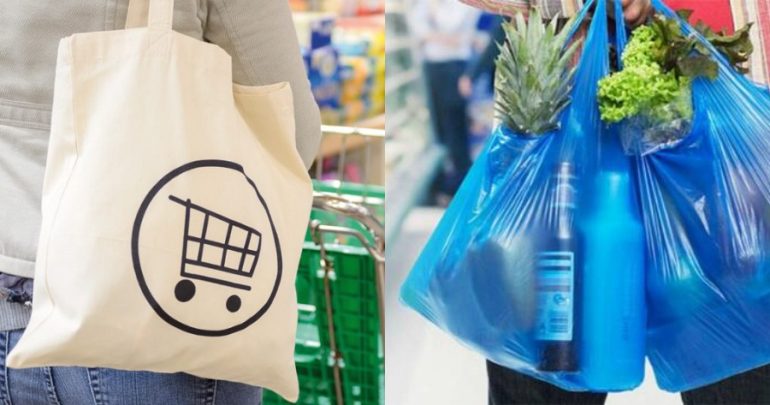Canvas bags: Greece together with many other countries of the world have somehow "declared" a war against plastic bags.
Not unfair, of course, considering that plastic is one of the materials that cause huge environmental problems, from the manufacturing process to what happens when it ceases to be used. As it has been written in topontiki.gr, every year 4,3 billion are used. plastic bags. 2 billion plastic bottles for water and soft drinks are used. 300 million plastic coffee cups are used. Also, about 40 tons of plastic end up in the natural environment every day.
Canvas bags: The problem
In this context, and as legislation is gradually prohibiting the use of plastic, consumers, that is, us, are looking for ways to replace plastic bags that they use for their daily shopping. Some of us have ended up using cloth bags. They are durable. They can be used many times. If they get dirty, they are easy and fast to wash. Also, -for fashion conscious- they are much more elegant than other options such as bags made of braided polypropylene. What is the problem? Cotton bags, especially organic cotton bags, have a much worse ecological footprint than the thin biodegradable bags that are increasingly being used in various stores, mainly food, but not only. In fact, a 2018 study conducted by the Danish Ministry of Environment showed that canvas bags is one of the most environmentally friendly compared to other materials used.
Canvas bags: The study of Denmark
But let's start from the beginning. The Danish Ministry of the Environment study focuses on the life cycle of a bag. It also focuses on elements such as the environmental consequences of its manufacturing process (air pollution, water, ozone, human toxicity, etc.). The study does not take into account contamination of water resources by plastics and microplastics. Therefore, it excludes a huge problem from its measurements. However, as shown in the table below, the worst consequences for the environment - always under the conditions of research - have canvas bags from organic cotton. These should be used thousands of times until they replace a plastic bag. In the second worst place are the simple cotton bags. Also, even paper is not as green as it first seems. On the contrary, the most "environmentally friendly" appear to be bags made of thin plastic (low-density polyethylene - LDPE).
Why is this happening;
According to the study, organic cotton has about 30% less production than plain cotton. Researchers estimate that about 30% more sources such as water are needed to grow the same amount, even if less fertilizer or insecticide is used to produce it. The researchers also note that it is more difficult and less extensive to recycle than other materials, such as PET plastic or paper. Even plain cotton seems to have a much more significant environmental impact than various types of plastic. What does all this mean? First, that what is presented as "ecological" is not necessarily so. And secondly, that the fight to protect the environment and prevent climate change is much more complex than it may seem: a lot needs to be done at the same time and environmental protection needs to become an automated process for all of us if we really want to. the Earth to remain hospitable to us. After all, as the great comedian and philosopher George Carlin had said, the Earth will continue to exist without us.
via
